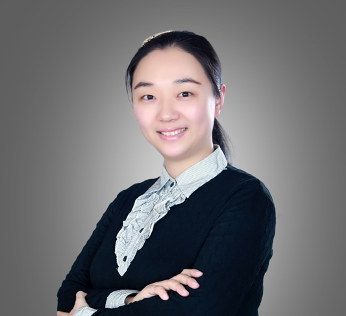IEEE SPS SCV - Multimedia Forensics: Challenges and Opportunities in the Era of Large Models
With the implementation and wide application of related tools such as ChatGPT and Sora, people realized that seeing is indeed no longer believing. More recently, the emergence of diffusion models with powerful generation capabilities has driven this topic forward. Subsequently, as the powerful tools for deepfake generation, corresponding detection technologies continuously evolved hence raising more security concerns of the public. This talk will discuss the development of multimedia forensics and focus on researching four representative deepfake fields: face swapping/face reenactment, talking face generation, and facial attribute editing, as well as forgery and deepfake detection and will finally analyze the challenges and future research directions of the discussed fields.
Date and Time
Location
Hosts
Registration
-
 Add Event to Calendar
Add Event to Calendar
Loading virtual attendance info...
- Contact Event Host
- Co-sponsored by CH10787 - Biometric Council, Beijing Chapter, BIO46
Speakers
Dr. Jing Dong
Multimedia Forensics: Challenges and Opportunities in the Era of Large Models
With the implementation and wide application of related tools such as ChatGPT and Sora, people realized that seeing is indeed no longer believing. More recently, the emergence of diffusion models with powerful generation capabilities has driven this topic forward. Subsequently, as the powerful tools for deepfake generation, corresponding detection technologies continuously evolved hence raising more security concerns of the public. This talk will discuss the development of multimedia forensics and focus on researching four representative deepfake fields: face swapping/face reenactment, talking face generation, and facial attribute editing, as well as forgery and deepfake detection and will finally analyze the challenges and future research directions of the discussed fields.
Biography:
Dr. Jing Dong is a Full Professor in the New Laboratory of Pattern Recognition at the Institute of Automation, Chinese Academy of Sciences (CASIA). She is a senior member of IEEE. Her research interests include pattern recognition, image processing, and multimedia forensics. She has published more than 100 academic papers and 30+ patents. She has chaired many major national scientific projects and played a leading role in several national and international academic organizations. She is an associate editor for the Elsevier 《Journal of Information Security and Applications》and the Editor in Chief for IAPR 《Newsletter》(2019-2022). She is also the APSIPA Multimedia Security and Forensics (MSF) Technical Committee member (2020-2024), Council member of the Chinese Society of Image and Graphics (CSIG) and the Chinese Association of Artificial Intelligence (CAAI), and the Secretary-General of Women in CSIG. She has been a very active volunteer in IEEE since 2008. She was the founding chair of IEEE University of Chinese Academy of Sciences (UCAS) Student Branch, the chair of Student Activity Committee of IEEE Beijing Section during 2011-2014, the 2009-2010 IEEE R10 Student sub-Representative (responsible for North-East of R10 zone), the Coordinator of R10 Electronic Communications & Information Management (EEC&IM) Committee during 2011-2012, the Chair of IEEE R10 Women in Engineering Committee during 2017-2018, the Vice Chair of IEEE WIE AG Beijing Section during 2018-2021, the chair of IEEE R10 Humanitarian Technology Activities Committee 2019-2022, the current Chair of IEEE Biometric Council Beijing Chapter, the Chair of IEEE R10 Awards and Recognition Committee, and the IEEE SPS Membership Development Director (2022-2024).
She was awarded the IBM Faculty Award(2016), the ICPR Best Scientific Paper Award (2018), the CAAI Outstanding Individual Member Award (2019), the CSIG Outstanding Female Young Scientist Award (2020), the CSIG Science and Technology Award (2021), the Wu Wenjun Artificial Intelligence Science and Technology Award (2021 and 2023), and the CAI Innovation Award (2022) for her excellent contribution for the technical innovation and leadership for the community.


